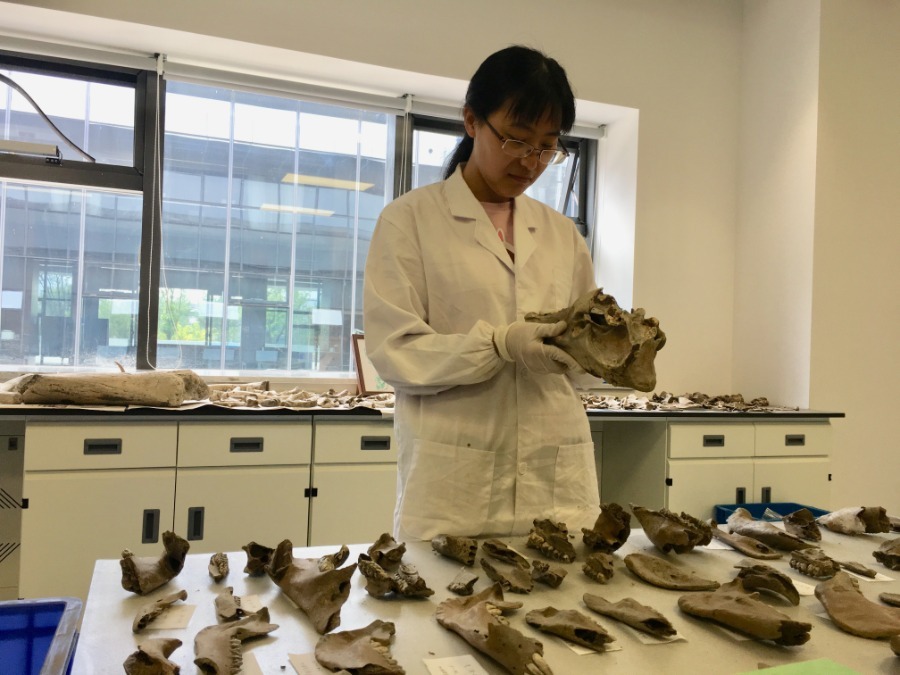

A similar policy has been adopted by some other cities, and is partially attributed to a proposal by He Yun'ao, a member of the 13th National Committee of the CPPCC and an archaeology professor at Nanjing University, during the two sessions in 2018.
"When the country's development reached this level after decades of fast economic growth, archaeology, which decodes where we come from, naturally attracts society's unprecedented attention," He says. "An updated legal system can lead us to greater achievements."
In the past century, Chinese archaeologists may have honed their skills amid one difficulty after another. Naturally, their horizon is wider today. More archaeologists have joined cross-border programs not only in neighboring countries, but also in faraway cradles of civilization like Egypt, Central America and Eastern Europe. China has joined 44 such projects in the past five years, according to the NCHA.
During this year's two sessions, the Nanjing University professor called for more funding. "Many scholars have to raise funds by themselves for overseas research, making it difficult to carry out in-depth work," he says.
"A national fund particularly for such programs will bear more academic fruit."
He also handed in a proposal to enhance archaeological cooperation along the Silk Road by establishing a multilateral platform to include more international scholars. "A strengthened dialogue among archaeologists in different countries will help to build a shared future."